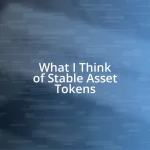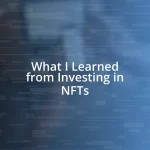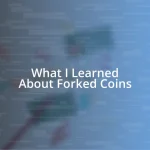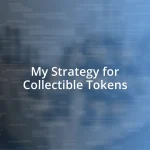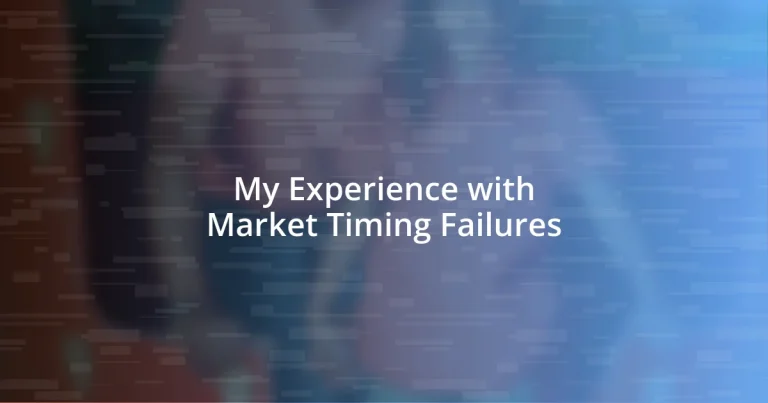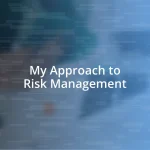Key takeaways:
- Market timing risks can lead to significant losses; patience and a long-term strategy are essential for investing success.
- Emotional detachment from investments helps avoid impulsive decisions driven by fear or excitement.
- Thorough research and trusting one’s analysis are crucial to making informed investment choices rather than relying on external hype.
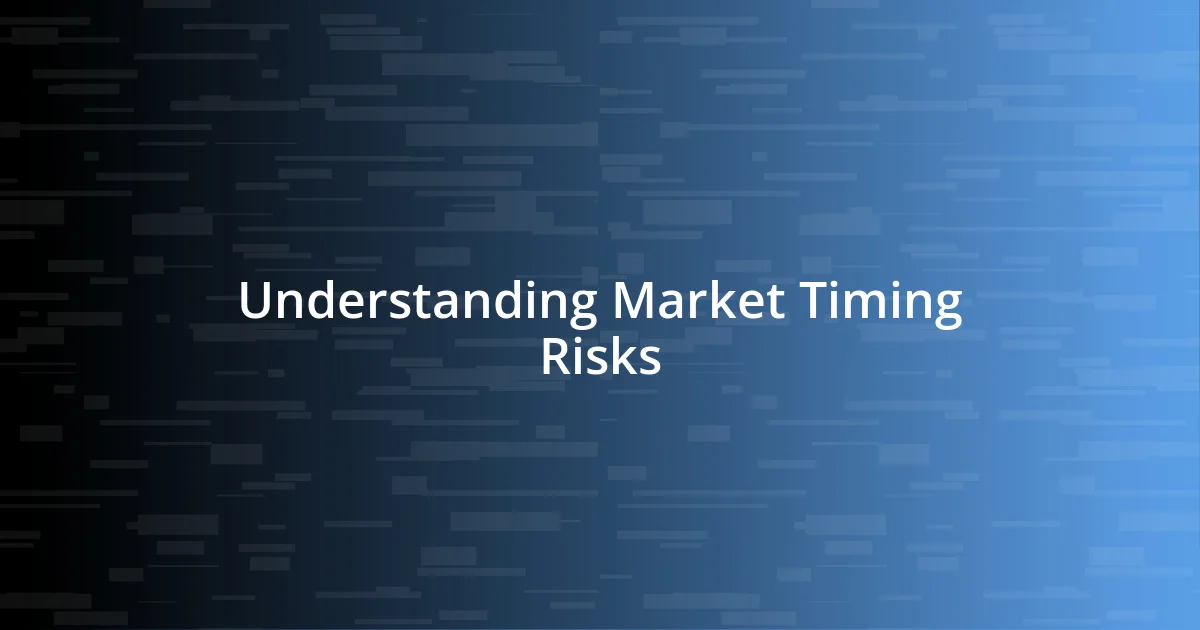
Understanding Market Timing Risks
Market timing risks can feel like a double-edged sword. I remember a time when I thought I could outsmart the market by selling my stocks right before a dip. However, I ended up missing out on significant gains as the market rebounded unexpectedly. It’s a tough lesson that highlights how unpredictable markets can be.
What I find particularly perplexing is the mental game behind market timing. Have you ever felt the urge to jump in or out of the market based on a gut feeling? I certainly have, and it often led me to make hasty decisions that weren’t backed by solid research. The emotional rollercoaster of investing can cloud judgment, which is why understanding the inherent risks of timing the market is crucial.
Moreover, the idea that one can consistently predict market movements is often misleading. I once had a friend who swore by a “perfect” method for timing his trades. But when faced with real market volatility, his strategy fell apart, and he lost more than he bargained for. This experience taught me that relying solely on timing can be a perilous gamble, underscoring the importance of a long-term investment strategy instead.
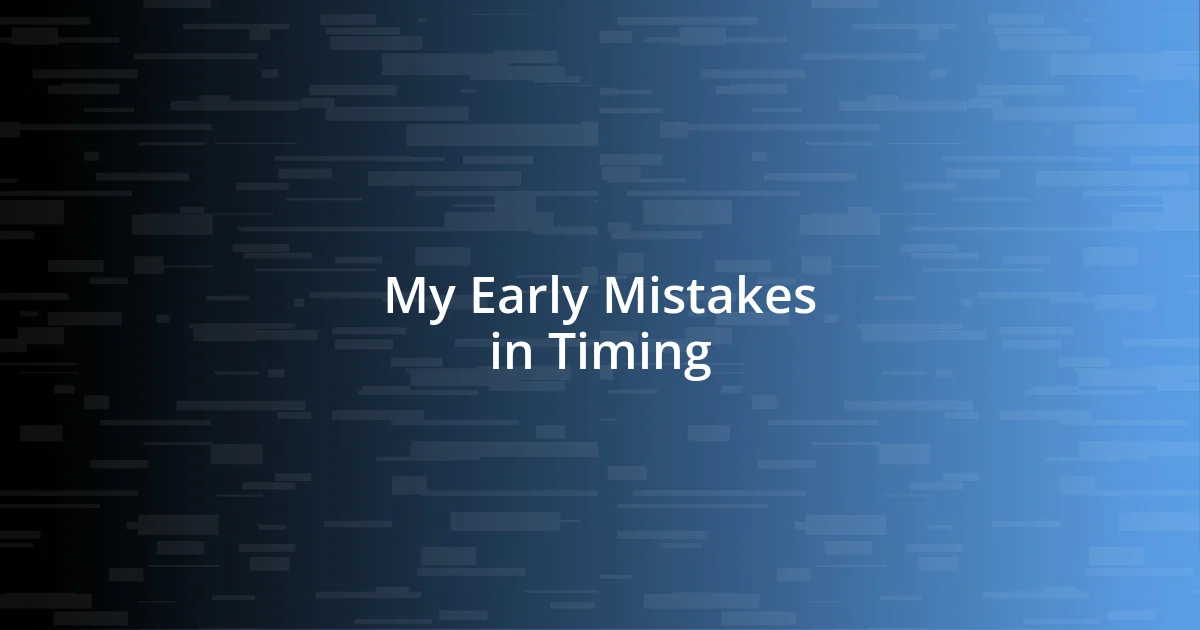
My Early Mistakes in Timing
During my initial foray into investing, I made a classic blunder: trying to time the market based on trends that I thought I noticed. There was that time I sold off my shares, believing I was cleverly avoiding a downturn. Instead, I watched helplessly as the stocks I sold surged the very next day. It was incredibly frustrating, and I felt like I had let my optimism get the better of me.
Reflecting on my early mistakes, it’s clear that my confidence often masked my inexperience. I remember chatting with a colleague who was also new to investing. We would hype each other up about the latest market buzz, convincing ourselves we had the next big trend figured out, only to be left disappointed again and again. That bond might have felt empowering, but it led us down a path of poor decision-making.
The contrast between calculated investing and impulsive trading struck me hard. It’s easy to fall into the trap of believing that one can outsmart a complex market with intuition alone. I learned that every wrong move, every sudden sell-off that I thought was smart, only deepened my understanding of disciplined investing. Realizing that my early mistakes were rooted in emotion was an eye-opening experience.
| My Mistake | What I Learned |
|---|---|
| Selling stocks to avoid losses | Market rebounds can be unexpected. |
| Trusting gut feelings | Emotion can cloud judgment. |
| Chasing trends with friends | Group hype can lead to poor decisions. |
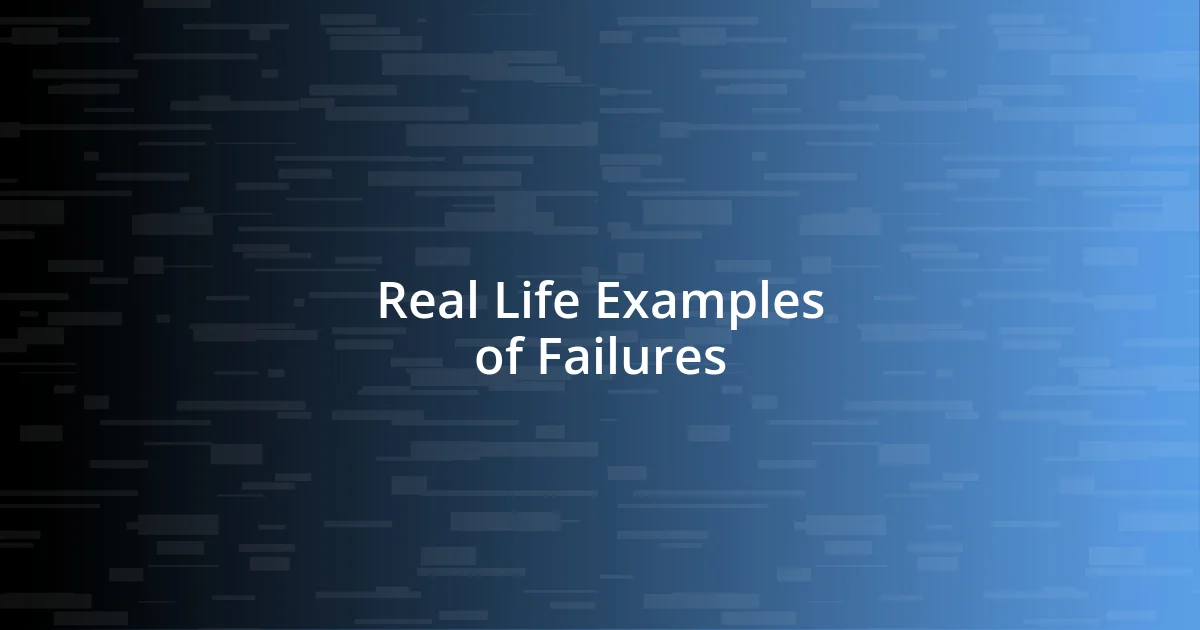
Real Life Examples of Failures
There was a time when I eagerly followed market predictions, thinking I had a keen sense of timing. I recall one particular episode where I sold a promising stock based on an analyst’s report that suggested a downward trend. My decision felt justified—until just a week later, that same stock skyrocketed, leaving me feeling not just regret but also a tinge of embarrassment. It’s a vivid reminder that even reputable sources can miss the mark, and my reliance on them led to a significant personal loss.
Another memorable instance was during the lead-up to a major economic report. My instincts screamed that the market would react negatively, prompting me to sell several shares. But when the report was released, it was more positive than expected, causing the market to surge. I was left staring at my computer, questioning my decision-making skills. Here are some examples of my most challenging lessons:
- Misinterpreting analyst reports led me to premature selling.
- Reacting to news without a thorough analysis resulted in missed profits.
- Market predictions can be wrong, highlighting the risk of following trends blindly.
These experiences taught me that sticking to a long-term strategy rather than chasing short-term gains is often the wiser path.
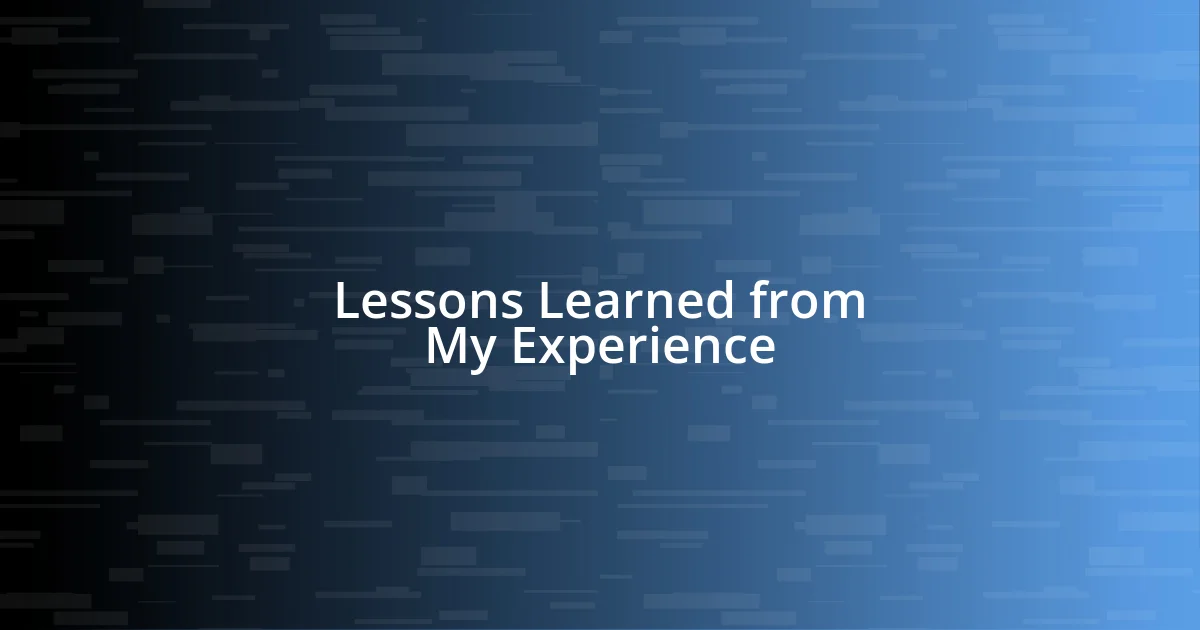
Lessons Learned from My Experience
There are moments in my investing journey when I truly realized the importance of patience. I remember a time when I was itching to see immediate results, and I made an impulsive decision to sell a stock I had held for months. Just days later, I learned that the company announced a groundbreaking product, and the stock price soared well beyond what I could have imagined. It hit me hard—does impatience cost me potentially life-changing profits?
One lesson that resonates deeply is the need to detach emotionally from investments. I used to invest based on the excitement of potential gains rather than solid data. It felt thrilling at first, but I soon learned the hard way that this kind of enthusiasm can lead to costly mistakes. I now ask myself: Are my choices grounded in facts or mere excitement? This shift in mindset has significantly improved my investment decisions.
The harsh reality of trend chasing opened my eyes to the importance of doing my own research. I recall discussing stocks with friends who were just as eager as I was. We became caught up in the excitement of the market chatter, which led to poor investments based purely on hype. It was an eye-opener. I now know that relying on others can cloud my judgment—not only do I need to understand the data myself, but I also need to learn to trust my own analysis over groupthink.
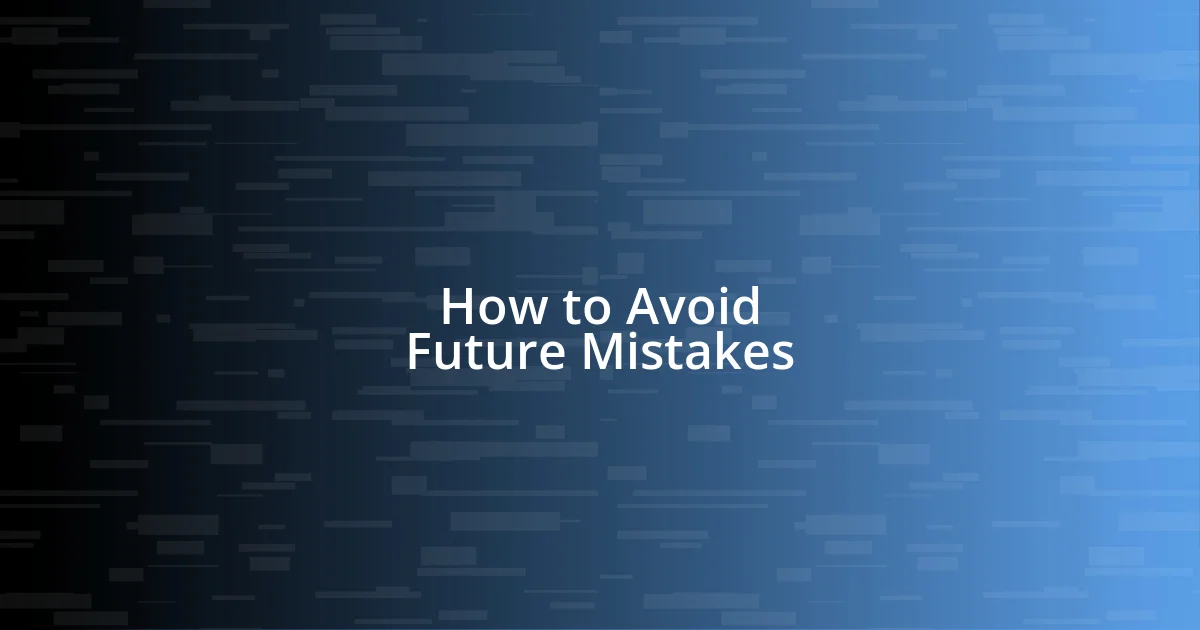
How to Avoid Future Mistakes
To avoid future mistakes, I’ve learned to establish a clear investment strategy and stick to it. I remember a situation where I let excitement over a trending tech stock sway my judgment, leading me to disregard my plan. Why did I think that a fleeting trend would serve me better than my carefully thought-out long-term goals? Ultimately, returning to a consistent strategy saved me from another unnecessary loss.
Another important lesson is to cultivate the habit of thorough research. Reflecting on the times I dove into investments based on a friend’s enthusiastic recommendation makes me feel uneasy. Did I really have the full picture, or was I swept up in their excitement? By taking the time to analyze data and verify claims, I’ve managed to avoid falling into the same trap—a strategy I now swear by whenever I consider new opportunities.
Lastly, I realized I must embrace emotional detachment from my investments. When I get too emotionally invested, I risk making decisions fueled by fear or greed rather than logic. I recall a panic-selling episode during a market dip; I regretted it as soon as the market rebounded. Now, I often pause and ask myself: Am I making this choice based on emotion or careful analysis? That simple practice has saved me from repeated pitfalls.
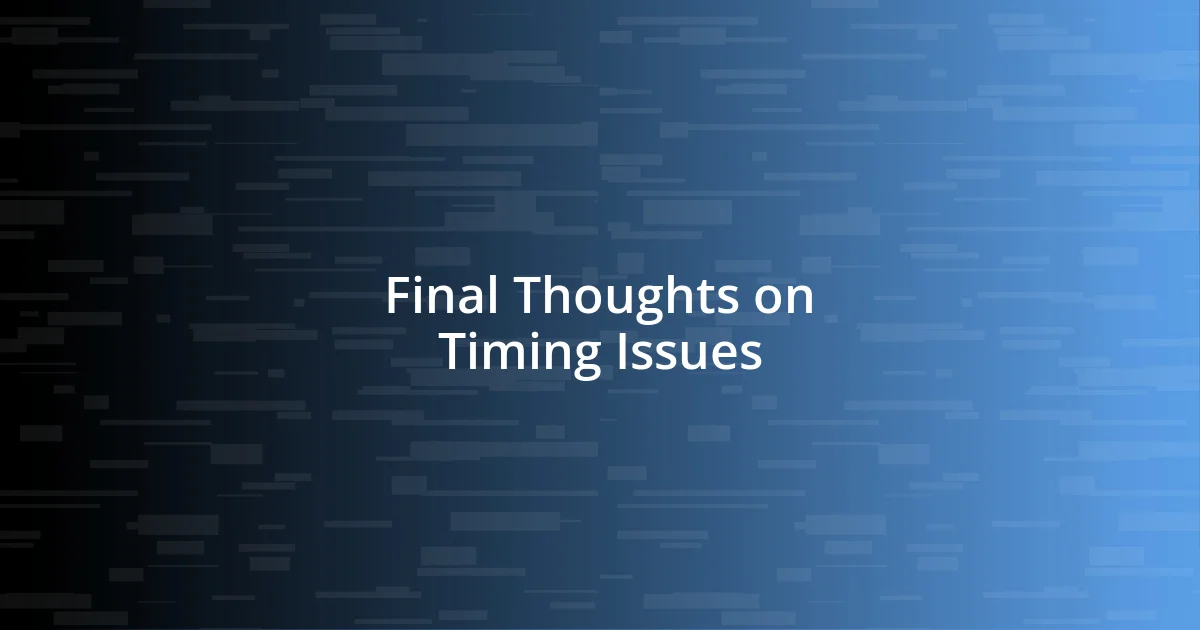
Final Thoughts on Timing Issues
Timing issues in investing can often feel like a double-edged sword. There was a period when I missed out on significant gains simply because I hesitated to act when I should have. It’s a frustrating realization—how often do we tell ourselves to wait for the “perfect time,” only to see the opportunity pass us by? This has taught me that sometimes, a balanced blend of gut instinct and research is essential.
Reflecting on my experiences, I’ve come to recognize how easily we can fall into the trap of overthinking. I vividly remember missing a golden opportunity to invest in a company that had a promising tech breakthrough because I second-guessed every piece of information. In the end, it’s clear: trusting your analysis and having the confidence to make a move is key. Isn’t it better to make a decision than to wait in uncertainty?
Lastly, I learned that timing isn’t just about understanding market trends but also about understanding ourselves. Can we accept our own limitations as investors? Recognizing my emotional triggers has been pivotal in my journey. It’s been an empowering realization that I can manage my impulses and remain focused on my long-term goals, which has ultimately led to better timing in my decisions.


